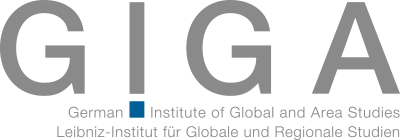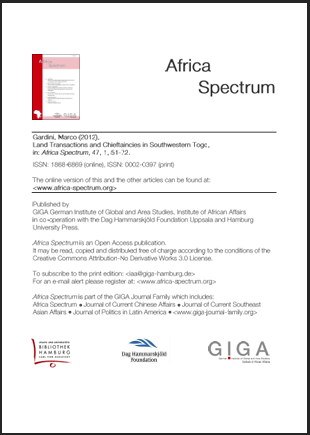Focal point
Location
The GIGA Institute of African Affairs (IAA) has been researching political and economic developments on the continent since 1963, primarily focusing on the areas south of the Sahara. The thematic core of the institute’s research consists of institutional structures (such as political parties, electoral systems and constitutional courts), conflicts over resources and religious domination, foreign investment and its consequences, and African leading powers. By working with local partners, IAA researchers gain comprehensive knowledge of developments in the region. This facilitates detailed analyses, which serve public and private decision-makers as important sources of information.
The IAA is the only institute in Germany that continuously monitors developments in the entire sub-Sahara region. It acts as a hub for the Africa-interested German public as well as for European research institutions. Under the umbrella of the GIGA, the IAA is the seat of the secretariat of the Vereinigung für Afrikawissenschaften in Deutschland (VAD; African Studies Association in Germany) and is represented on the board of the Africa-Europe Group for Interdisciplinary Studies (AEGIS). In addition, the IAA co-edits the award-winning Africa Yearbook and Africa Spectrum, which is listed on the Social Science Citation Index.
Members:
Resources
Displaying 1 - 2 of 2Land Reform and Conflict in South Sudan: Evidence from Yei River County
Following South Sudanese independence in 2011, land reform became a major aspect of state building, partly to address historical injustices and partly to avoid future conflicts around land. In the process, land became a trigger for conflicts, sometimes between communities with no histories of “ethnic conflict.” Drawing on cases in two rural areas in Yei River County in South Sudan, this paper shows that contradictions in the existing legal frameworks on land are mainly to blame for those conflicts.
Land Transactions and Chieftaincies in Southwestern Togo
Land access is becoming a crucial issue in many African contexts, where groups and individuals are coping with land scarcity and increasing competition over resources. Based on fieldwork carried out in the southwestern region of Togo, this paper explores the plurality and adaptability of the forms of land access that have historically emerged from changing economic and political landscapes characterized by the rise and the decline of cocoa cultivation.



